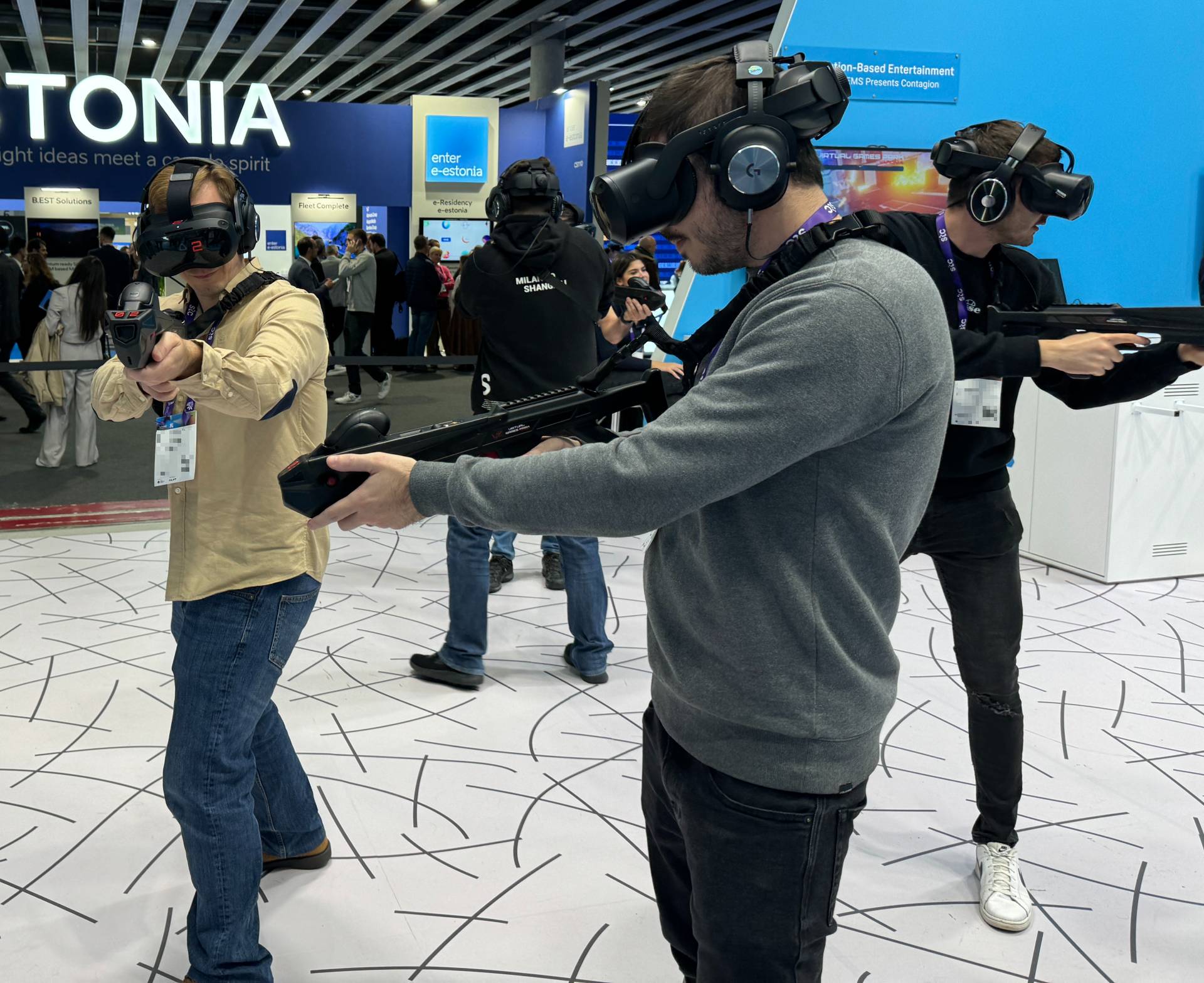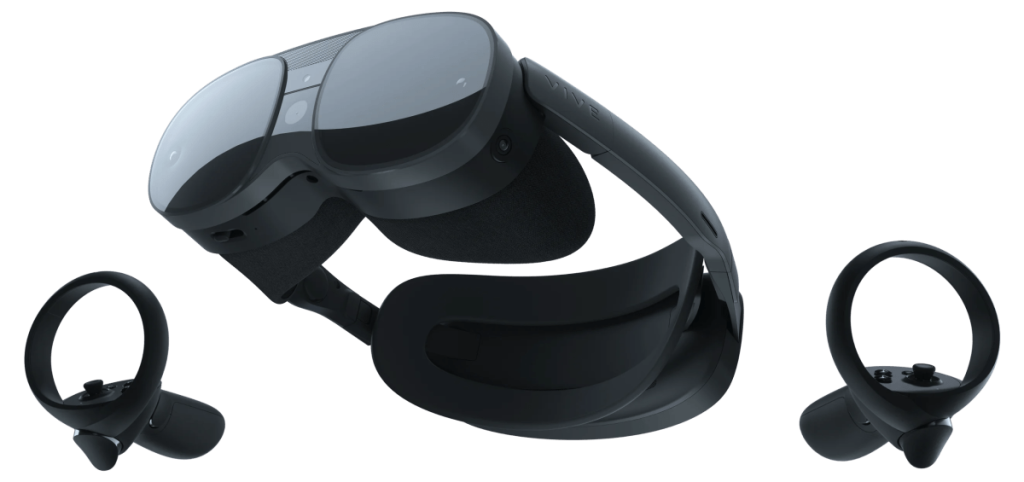Over the past decade, HTC has undergone significant changes since a small team split off to establish its mixed reality division. Today, HTC is no longer solely a phone company, although it still manufactures handsets, primarily targeting the mid-range market in Asia.
The mixed reality sector now plays a crucial role in HTC’s overall business, accounting for the majority of its global revenue, according to Dan O’Brien, the Vive general manager. At MWC, HTC showcased a large, white booth with various demo stations scattered throughout the space.
While showcasing third-party products, such as Nord Space ApS’s customized headset for astronaut Andreas Mogensen, it became apparent that entertainment-focused demos were attracting more attention than enterprise applications. This shift towards enterprise offerings has led to a significant decrease in HTC’s consumer business.
HTC’s early emphasis on gaming was influenced by a partnership with Valve, with a shift towards VR as the company’s primary focus. The gaming segment remains a small portion of HTC’s business compared to enterprise solutions, a trend expected to continue.
Comparatively, Meta has dominated the headset market, with Apple recently entering the fray with the Vision Pro. Despite Meta’s market influence, HTC remains a key player in the extended reality space, generating revenue primarily from headset sales.

Image Credits: Brian Heater
As Meta reshapes market perceptions of mixed reality pricing, companies like HTC are navigating the evolving landscape. Primarily an extended reality provider, HTC has significantly progressed in the enterprise sector compared to competitors like Magic Leap.
With a focus on training and certifications for various industries, HTC continues to strengthen its grip on the enterprise market. The company has also expanded into mixed reality technologies, blending augmented reality functionalities for a holistic approach to VR.
Looking ahead, HTC foresees significant advancements in generative AI integration within its ecosystem, a development poised to revolutionize virtual reality environments and enhance user experiences.



